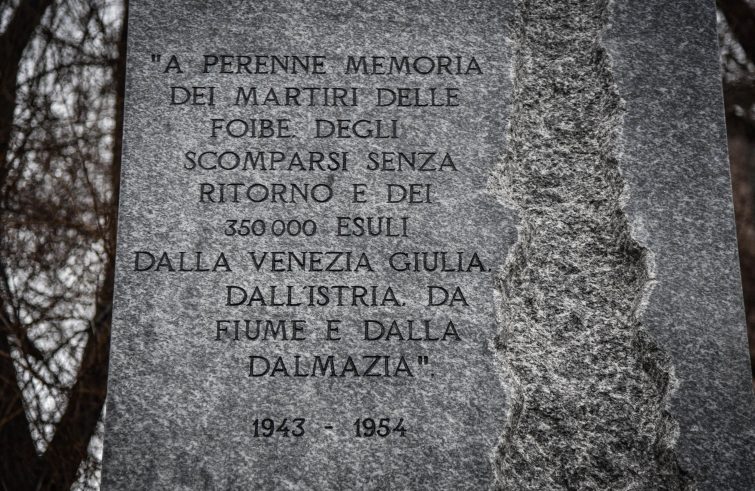
Precisely 75 years ago (February 10, 1947) the Paris Peace Treaty between Italy and the Allied Forces marked a point of no return in the Julian-Dalmatian exodus from Istria, Quarnaro and Dalmatia.
Remembering those events today is a historical duty and a sign of respect for over 250,000 innocent victims. At the same time, it is an obligation directed at the younger generations
to ensure that they understand what happened and strive to prevent it from ever happening again.
Sadly, now more than in the past, we face the risk of oblivion, since the number of survivors of those days is declining year by year for unavoidable age-related reasons. Stories passed down from grandfather to grandson and father to son about the daily life in Pula or Fiume certainly remain, but the names and the faces of those who experienced those events are no longer remembered. This fact is all the more dramatic considering that most of the signs of that presence have been erased even from tombstones and house façades, and many await to obtain information on the site where their loved ones were killed, so they may finally say a prayer and place a flower on their graves.
Italy has attempted to honour the debt of gratitude owed to these compatriots with great difficulty – and only in the last twenty years.
After having welcomed them with silence and discomfort in the days of their exodus – as if they were to blame for their plight – Italy confined their tragic vicissitudes to a form of “damnatio memoriae”, treated with unsympathetic silence imposed by party and ideological interests.
The psychological and physical violence inflicted on the lives of the men and women forced to leave their homes and depart for an unknown destiny has long since become a shameful vacuum in the history of our country:
The Italians of Istria, Dalmatia and Quarnaro were not mentioned in history books or newspapers, and their vicissitudes were not recognised as being worthy of being recounted in classrooms.
Yet, to fully understand its magnitude, it would have sufficed to lend an ear to the voice of the ones forced to leave, knowing that it would be “forever”.
When the relations between States changed, and the walls fell, enabling them to return to the places of their youth, many were unwilling or unable to do so. Those wounds were still bleeding in their hearts, and remembering the past was all too unbearable after such a long time.
This takes on added relevance today, on the Day of Remembrance, when Italy hopes to “preserve and renew the memory of the tragedy of the Italians and all the victims of the Foibe, the exodus from their lands of the Istrians, Fiumani and Dalmatians after World War II and the complex vicissitudes of the eastern border.” It is also a due acknowledgement of the journey that men and women with the ability to exercise the gift of prophecy have undertaken together (often surrounded by ignorance and regarded with mistrust and suspicion) on both sides of the first Wall erected in Europe after the Second World War to mark the division of the old continent into blocs.
Their commitment made it possible to develop a networks of relations that ensured a period of peace never before experienced by European peoples.
“The anguish and suffering of the victims of that persecution, of the refugees, of their offspring… have bolstered our resolve to defend and strengthen the principles of democracy and to promote peace and international cooperation – rooted in inter-State dialogue and friendship between peoples”, said President Mattarella on February 9, 2020.
(*) editor-in-chief, “Voce Isontina” (Gorizia), FISC- national president












